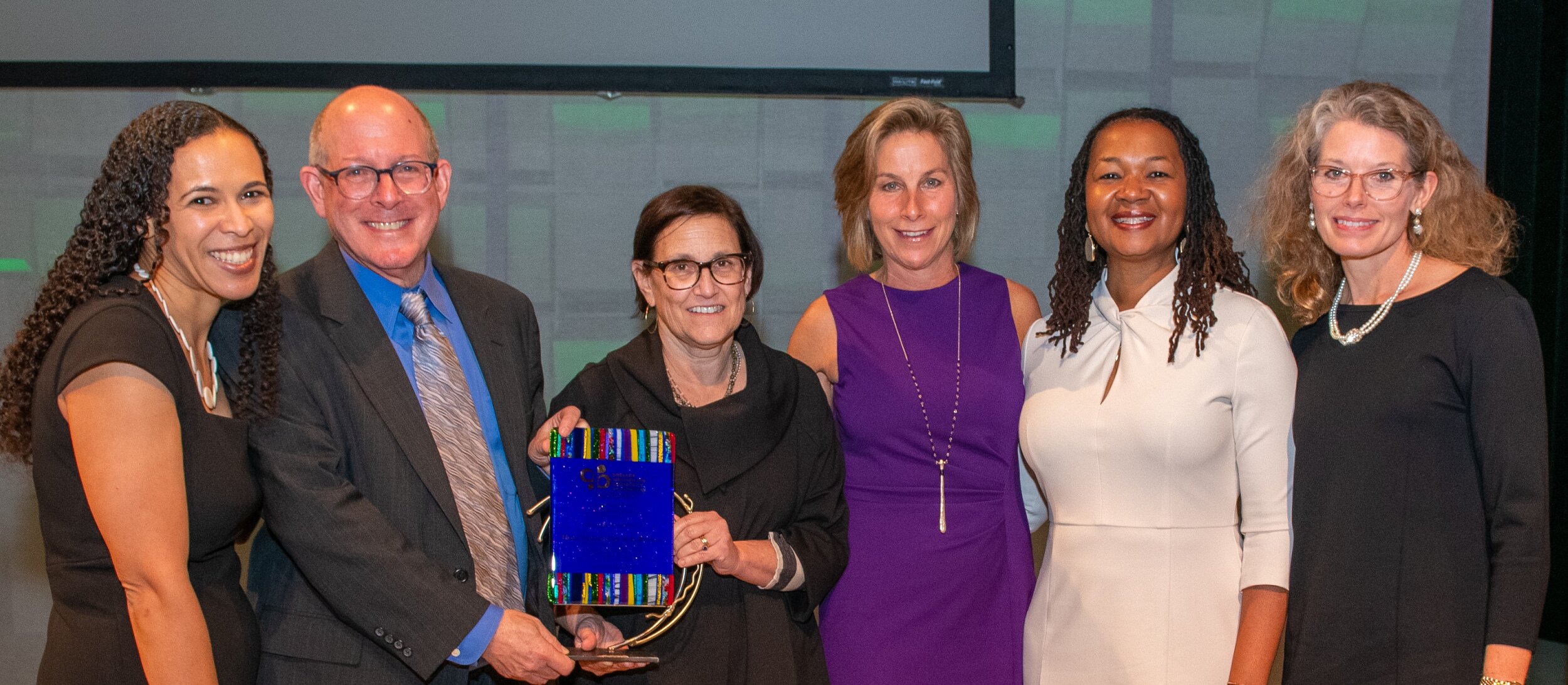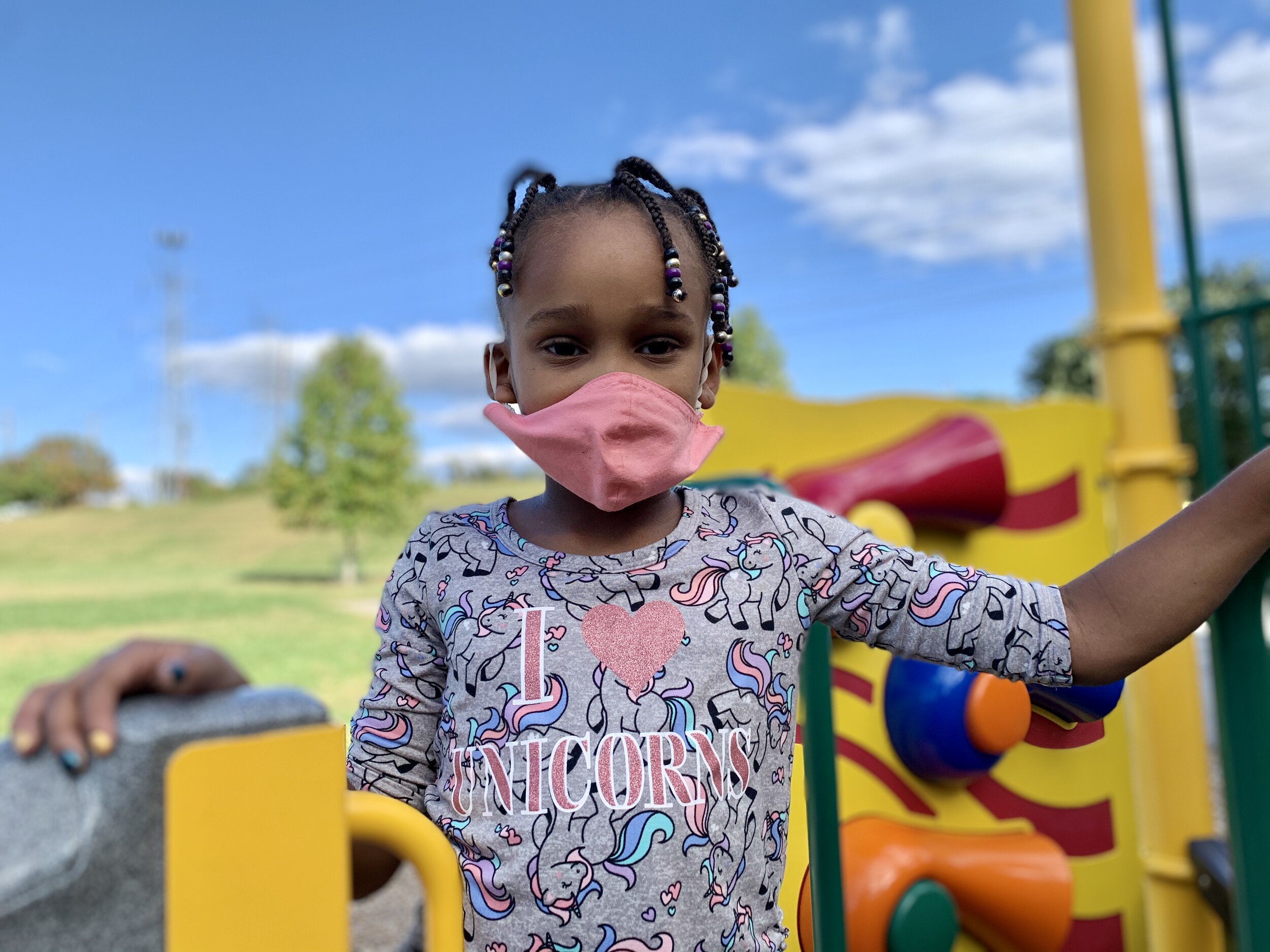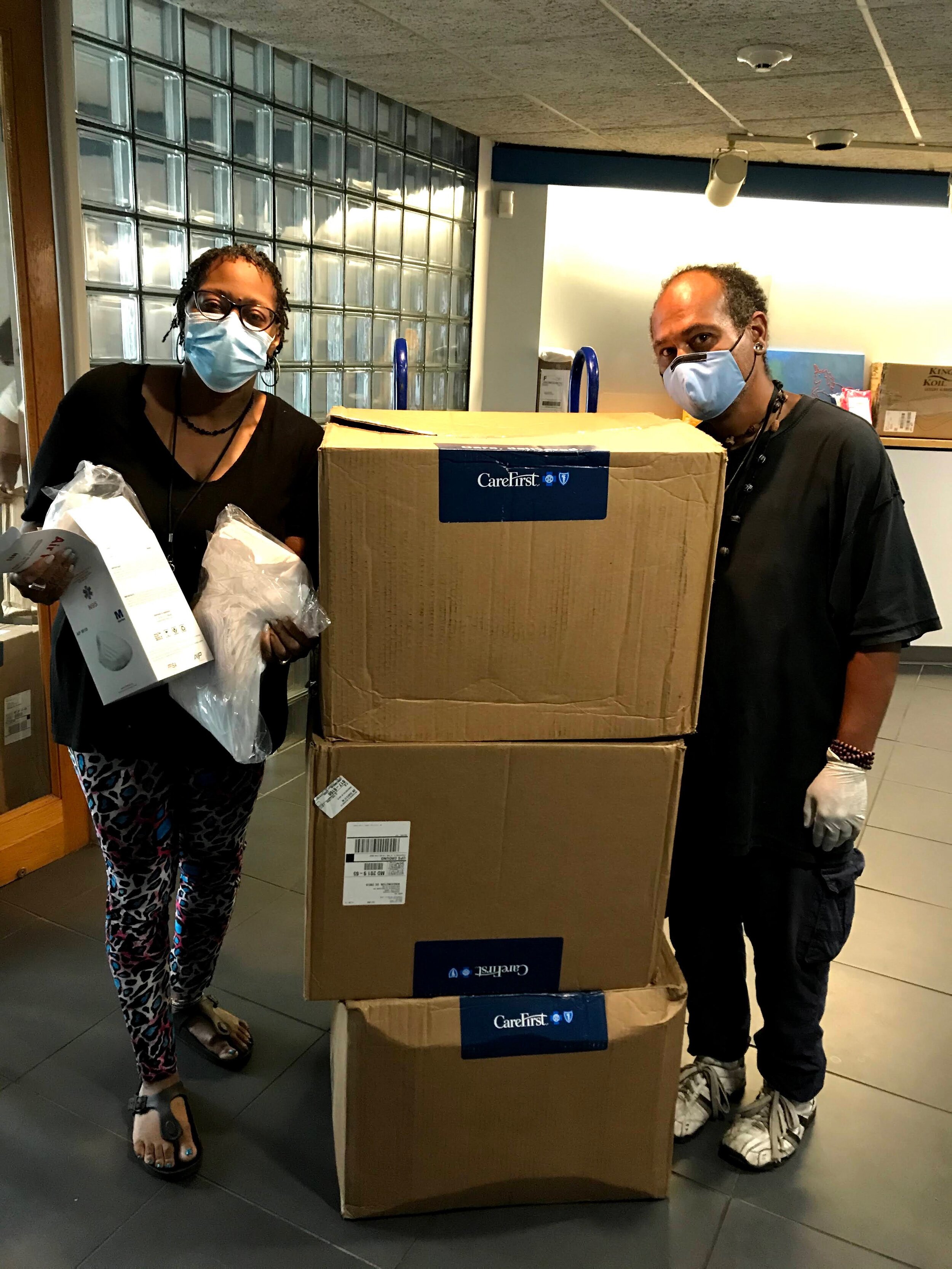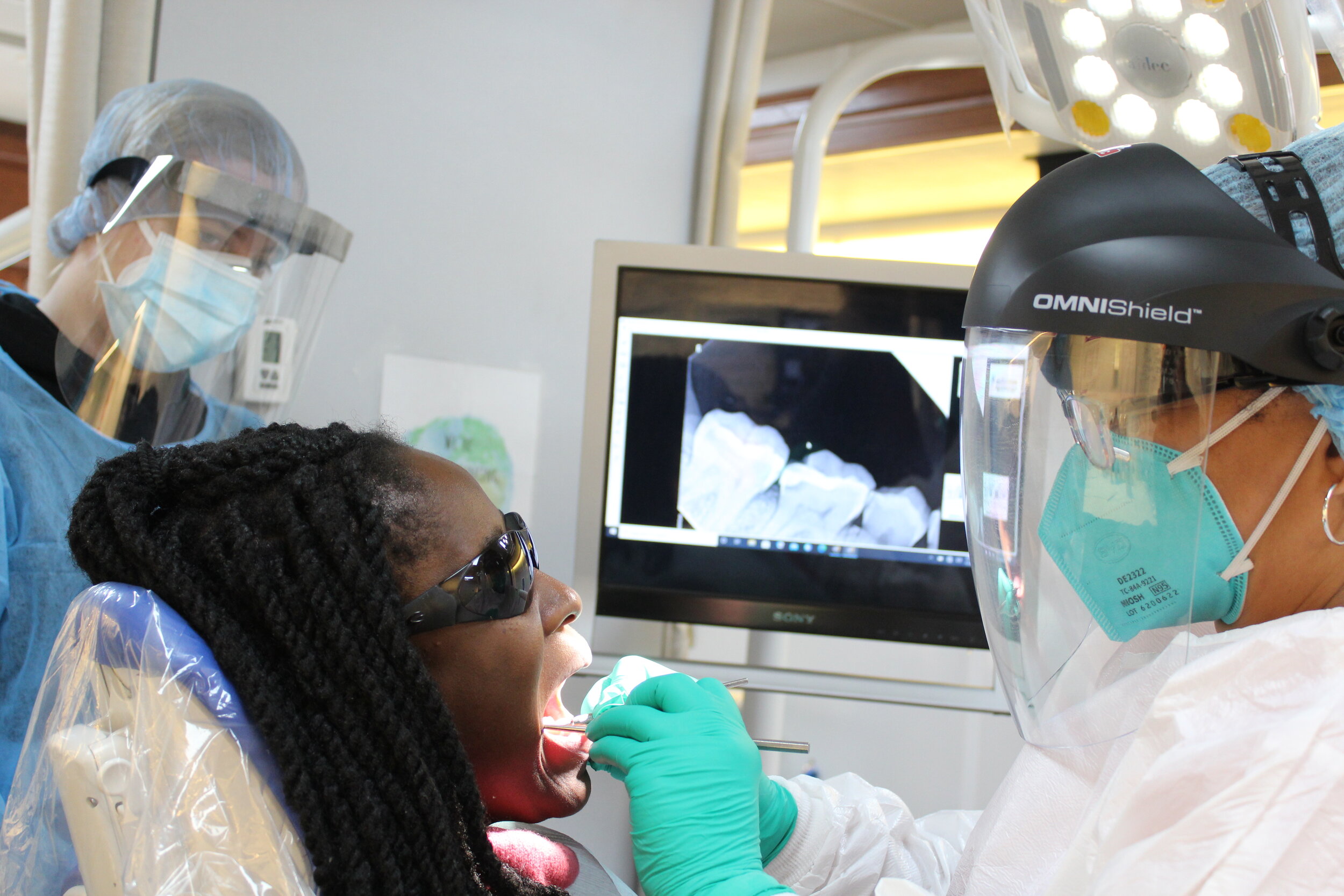The Greater Washington Community Foundation welcomes Anna Behnam, Christopher J. Martin, and Ana Morales to its Montgomery County Advisory Board, and Glenda Wilson to its Prince George’s County Advisory Board.
These individuals join a diverse group of passionate and dedicated advisory board members. They, along with their colleagues, are responsible for advising The Community Foundation on the challenges and opportunities specific to their respective counties, and sharing their knowledge on issues of community leadership for greater impact.
Meet our Newest Montgomery County Advisory Board Members
Anna Behnam
Behnam & Associates
Anna has worked 22 years in the financial advisory business and is the managing director and active financial advisor with Behnam & Associates. Anna is an active member of The Greater Bethesda Chamber of Commerce. She has co-chaired committees such as the Chamber’s annual gala, The Big Event and is currently the Chair of the Board of Directors. Anna is also a member of the Chamber’s Elite Forum Club. In addition to the BCC Chamber, she has served on the board of Coral Reef CPR and Dast2Dast.
Anna graduated from George Mason University with a B.S. in Accounting and a B.A. in Biology. She also has a Certificate in Financial Planning from Georgetown University. Anna lives in Bethesda with her husband, and two children. Her family puts great emphasis on charitable actions and giving back to the community. In her spare time, Anna enjoys photography, painting and reading.
Christopher J. Martin
C. J. Martin Law Group
Christopher J. Martin is a seasoned attorney, experienced in helping individuals, families and small business owners with their legacy planning needs. Chris works closely with his clients to create and implement plans to benefit their families and communities through various methods including both lifetime gifting and postmortem wealth transfers. In addition to his work with individual clients, Chris regularly speaks to both public and private organizations and has contributed to numerous publications including articles for the National Business Institute and The Business Monthly.
Formerly, Chris worked for a boutique estate planning firm in Montgomery County, Maryland, overseeing a variety of estate planning and probate matters and managed a solo estate planning practice. Chris also had the pleasure of serving as a law clerk for the Honorable Sheila R. Tillerson Adams, Chief Administrative Judge for the 7th Circuit of Maryland.
Chris earned his law degree from Howard University School of Law, and his undergraduate degree from Saint Louis University, from which he graduated magna cum laude and was on the Dean’s List.
Ana Morales
United Bank
Ana is Senior Vice President and Managing Director of Commercial Services at United Bank. Her Team is responsible for driving commercial deposit growth throughout United Bank’s footprint, which comprises of 223 offices across Maryland, Virginia, Washington, D.C., North Carolina, South Carolina, Pennsylvania, West Virginia, and Ohio. Ana has been in the financial industry for 22 years and has worked in various areas of banking, including International Banking, Private Banking, Retail Management and Treasury Sales.
Ana serves on the Board of Directors for NAMI-MC (National Alliance on Mental Illness – Montgomery County) and the Catholic Business Network of Montgomery County. She collaborates with Catholic Charities’ Financial Stability Network to organize financial literacy workshops in Spanish, and volunteers as a financial mentor. Ana previously served on the Board of Cornerstone Montgomery and Liberty’s Promise. She also served on the Business Engagement Committee for Imagination Stage.
Ana was born in Guatemala and moved to Montgomery County with her parents and 3 sisters when she was 9 years old. She lives in Kensington with her husband, daughter, and English Bulldog.
“Anna, Chris, and Ana share our commitment toward building thriving communities where everyone has the opportunity to thrive,” says Anna Hargrave, Executive Director for Montgomery County at The Community Foundation. “We are thrilled they will bring their knowledge, creative thinking, and community leadership experience to the Advisory Board as we seek to help our community rebound from the COVID-19 pandemic and build a stronger, more equitable Montgomery County for the future.”
Meet our Newest Prince George’s County Advisory Board Member
Glenda Moore Wilson
Vice President, LEARN Foundation
Ms. Glenda Moore Wilson has been in service to Prince George’s County for over three decades. She was appointed Chief of Staff, in 2011, by Prince George’s County Executive Rushern L. Baker, III. She guided and facilitated the implementation of the Baker Administration’s vision and mission in the core areas of economic development, public safety, education, and healthcare. Ms. Wilson was a pivotal team member in the development of the unprecedented Prince George’s and MGM Community Benefit Agreement associated with the $1.2 billion MGM National Harbor Casino Project.
Previously, Ms. Wilson served as Senior Advisor and Chief of Staff during the administration of Wayne K. Curry, the County’s first African American elected County Executive. During that eight-year tenure, she played a critical role in Mr. Curry’s transformative accomplishments that turned Prince George’s County into a regional economic hub.
Ms. Wilson is actively engaged in the county, but she has an unparalleled dedication to the LEARN Foundation, established during the Curry Administration as part of the Redskins Stadium project to relocate the team to Prince George’s County. The LEARN Foundation awards scholarships to youth in the stadium impact zone and grants to nonprofit organizations serving the impact area.
Ms. Wilson is a graduate of South Carolina State University, where she earned a Bachelor of Arts degree. She is the recipient of numerous awards and a member of Leadership Greater Washington.
“Glenda shares our deep commitment to improving the quality of life for Prince George’s County residents. Her work very much aligns with our goals to increase philanthropy and ensure equity and economic mobility,” says Amina Anderson, senior director for Prince George’s County at The Community Foundation. “We are grateful that she continues to serve the county in a myriad of ways and honored that she has chosen to work with The Community Foundation. We look forward to partnering with Glenda to ensure that each and every Prince Georgian has an opportunity to achieve their full potential.”






















